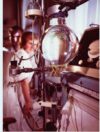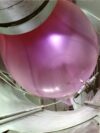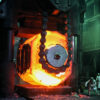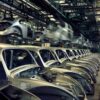Zurück
Weiter

Wolfgang G. Schröter: Labor des VEB Filmfabrik Wolfen, 1967, k.A. © Deutsche Fotothek
1/5

Werksfotografie: Folienherstellung bei BASF, Werksfotografie, 1960, k.A. © BASF SE BASF Corporate History, Ludwigshafen
2/5

Karl-Heinz Kämmner: Schmieden einer Turbinenwelle für ein AKW, 1984, k.A. © thyssenkrupp Corporate Archives, Duisburg LWL-Industriemuseum Henrichshütte Hattingen
3/5

Martin Schmidt: Im Forschungslabor des VEB Fahlberg-List, 1970, k.A. © Deutsches Historisches Museum
4/5

Werksfotograf: Karosserien im Volkswagenwerk, k.A. © Volkswagen Aktiengesellschaft
5/5

Wolfgang G. Schröter: Labor des VEB Filmfabrik Wolfen, 1967, k.A. © Deutsche Fotothek

Werksfotografie: Folienherstellung bei BASF, Werksfotografie, 1960, k.A. © BASF SE BASF Corporate History, Ludwigshafen

Karl-Heinz Kämmner: Schmieden einer Turbinenwelle für ein AKW, 1984, k.A. © thyssenkrupp Corporate Archives, Duisburg LWL-Industriemuseum Henrichshütte Hattingen

Martin Schmidt: Im Forschungslabor des VEB Fahlberg-List, 1970, k.A. © Deutsches Historisches Museum

Werksfotograf: Karosserien im Volkswagenwerk, k.A. © Volkswagen Aktiengesellschaft